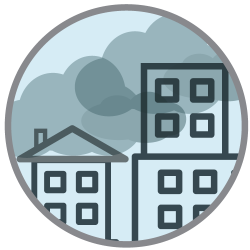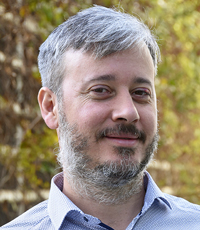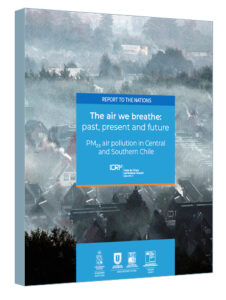CROSS-CUTTING THEME
Atmospheric pollution

Several cities in Chile are experiencing poor air quality (AQ) in terms of PM10 and/or PM2,5. Approximately 60% of the Chilean population is exposed to an annual average PM2,5 concentration greater than that permitted by Chilean environmental regulation.
In the southern central region, atmospheric pollution is largely due to wintertime wood burning for residential heating. Particulate matter, more specifically PM2,5, are known to produce adverse health impacts. Studies have linked PM2,5 to respiratory and cerebrovascular problems and it is estimated that approximately 4,000 premature deaths in Chile can be attributed to air pollution annually.
CR2 worked to estimate the impact of urban pollution on health, downwind ecosystems, agricultural productivity, and on the Andean cryosphere. Furthermore, the team explored how this impact is expected to evolve under different emission trajectories and also different governance conditions.
Air pollution and climate change are inextricably linked, and should therefore be addressed in a coordinated manner. In response to this context, CR2 research not only addressed the physical links between AQ and climate change in Chile, but also seeked to assess Chilean governance structures and processes in order to jointly address air pollution and climate change and explore measures to increase resilience in the face of these challenges.
Knowledge of the way air pollution conditions may evolve in future scenarios would enable decision makers and policy makers to develop strategies to reduce impacts on society. Furthermore, the integration of interdisciplinary knowledge with community involvement supports urban resilience against climate change and other negative effects of urbanization.
Lead researcher

Reports to the Nations







